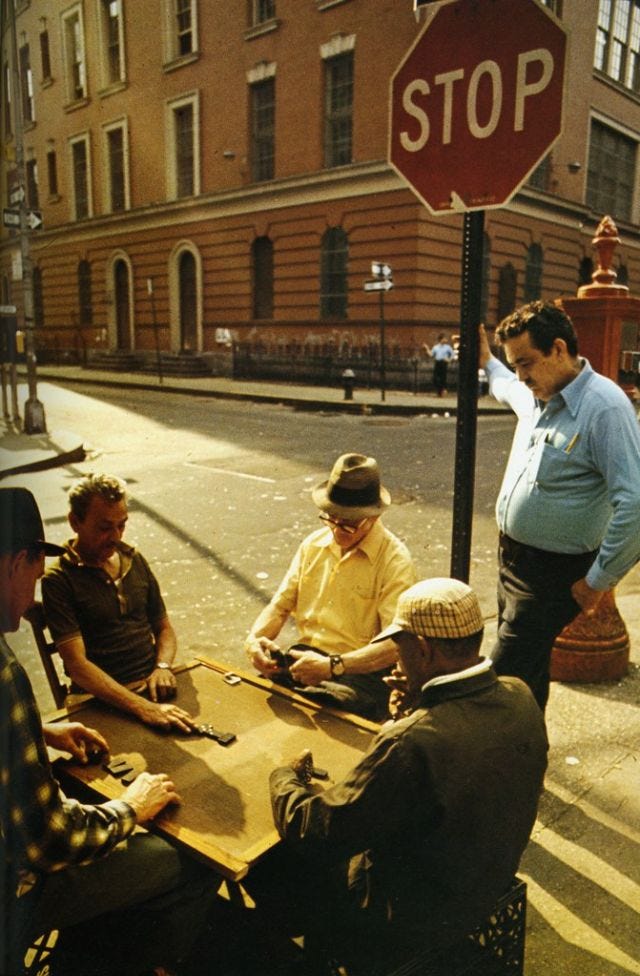The Time Traveler's Perspective
Step into the DeLorean.
I think from time to time everyone daydreams about going back in time to change what would be the future.
Sometimes these are grandiose fantasies striving to put right what once went wrong. Other times it is an attempt to channel the superpower that would be knowledge of the future.
As fun as that is, I would like to propose a different thought experiment with a twist on time travel. Imagine you could go back in time, but not specifically remember the future.
Obviously this is a very different exercise than when you can remember the future—both for attempts at virtuous changes as well as a basic need to make your new life in the past bearable. In the first case if you don’t know the future, then you don’t know for certain what changes to advocate for . . . kinda exactly like real life.
In the second case the underappreciated thing about the difficulty of time travel is how hard you would find living in the past to be. From boredom to disease and from poor technology to bigotry, dealing with the past would be an excruciating torture filled with constantly unmet desires and frustratingly bad limitations.
Perhaps if you could just remember that it gets better—and different, not everything is progress, but at least it changes—as well as that what seems to matter today won't matter so much soon enough. Have the combined perspective that "To every thing . . . there is a season."1 as well as “Nothing in life is as important as you think it is, while you are thinking about it.”2
This perspective, just a glimpse of the future in vague but hopeful terms, would then free you to enjoy the beauty and awe around you. Imagine the ability to appreciate the quaintness of life in that moment. When you are living in it, the current seems ordinary while the past seems romantic and the future some combination of scary and hopeful—both rushing at us like an avalanche and painfully slow to ever arrive.
People in the era of Mad Men did have a sense of wonder that in many cases we’ve lost today. Times were a changin’, and they were emerging out of the horrors of World War II. Yet, they didn’t see life around them as quaint, easy, or peaceful. Why? Because it wasn’t! Yet we can have that perspective because we see the actual future they were yet to achieve.
As a child of the 80s and 90s, I remember fondly those days. A lot of that is simply the curse of nostalgia—a perspective completely distorted by remembering a false history. We think we remember it being great when we are really remembering being young. The perspective of youth is a powerful drug.
When I think harder about it, I remember the agonies of waiting until you got home to look something up in the encyclopedia, not being able to reach people when you needed them, and the intense boredom of having to be in the moment with no escape. “How long is this event going to be? And we have to just sit here!”
“But that’s what was great about it!” I hear you protest. I disagree. What I think is great about it is the remembering of a time that was so different than the present. We aren’t fondly remembering better times. We are fondly remembering harder times that we got through. Sure, there were great moments, but, again, don’t confuse the joys of youth with the toil of life as it was.
Even if we agree that the music was better, it was MUCH more expensive and harder to come by. This is indicative of basically everything we could compare.
And this would be the torture that a fully conscious trip to the past would quickly evolve into. All the worse if the trip was a one-way journey. If you leapt back with no known return plan or worse if it were a permanent stay, you would likely go crazy if you couldn’t summon for use your powers of future knowledge.
“Don’t change the future, Marty.” Doc commanded. But he couldn’t help but do so.
The purpose of this thought experiment is to go a different way—one that leads to serenity. Appreciate the nuances of life, the beauty of the moment, the struggles and small successes. Basically travel back to the nostalgic illusion and maintain the illusion. Just be an appreciative observer on the voyage.
Dial a number on a rotary phone, using a shared line in the hallway, that if you’re lucky has a cord long enough to take your conversation around the corner for a hint of privacy.
Sit for a family dinner where there are no distractions or escapes in our pockets. Where grandpa holds court telling you, again, a story from a time that he remembers fondly.
Wait in line for movie tickets. Use a folding map for navigation worrying about your options for more gas down the road. Type—on a typewriter. Do calculations by hand. Use paper for a spreadsheet.
But didn’t I say that was all the bad stuff we actually didn’t like? Yes, and it was! The point is that in the time and place of those moments that was just dull reality. We felt the pain and didn’t appreciate the beauty. Going back we could bear the difficulty secured by the faint knowledge of a better future.
When people around you would wonder and question your serenity (and sanity) asking, “How are you always so calm?”, you would just say, “Honestly, I don’t know. I just know it is okay.”
Live in the past, in the moment, with a calm Zen and stoic fortitude relying solely on the faith that it will change and improve. This too will pass.

Ecclesiastes Chapter 3 and The Byrds
Daniel Kahneman

